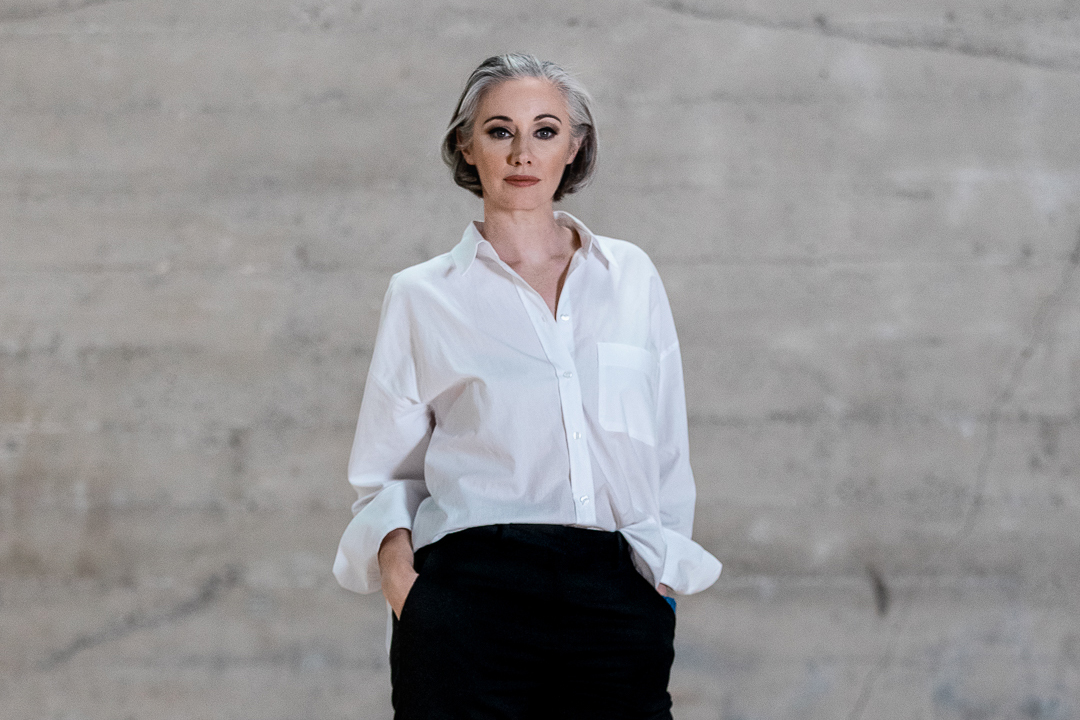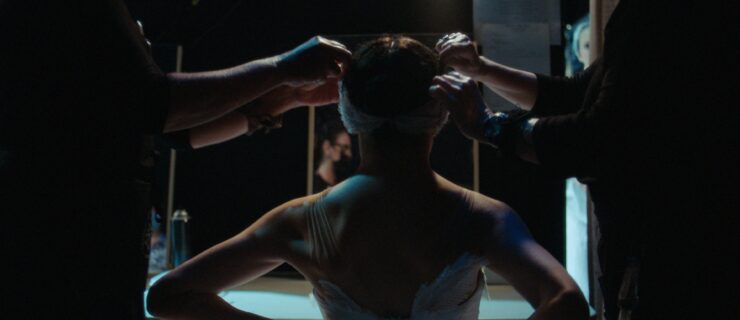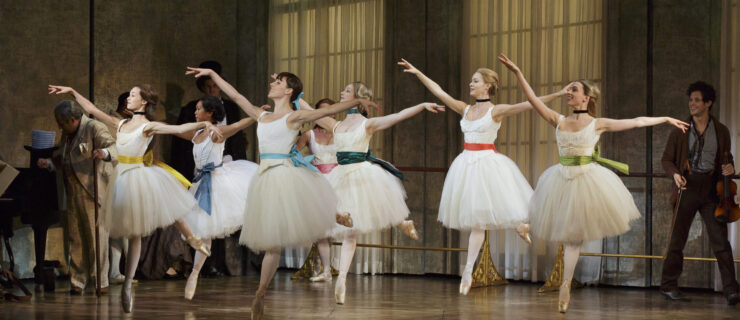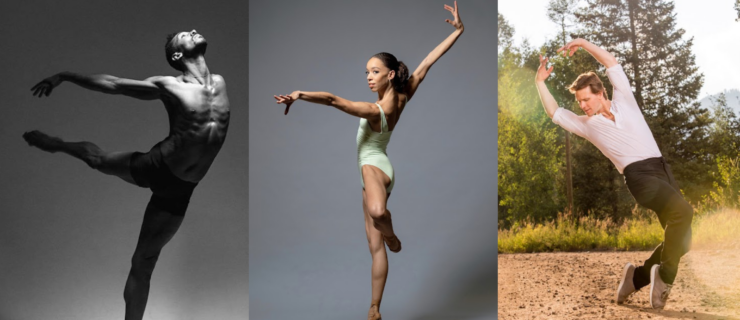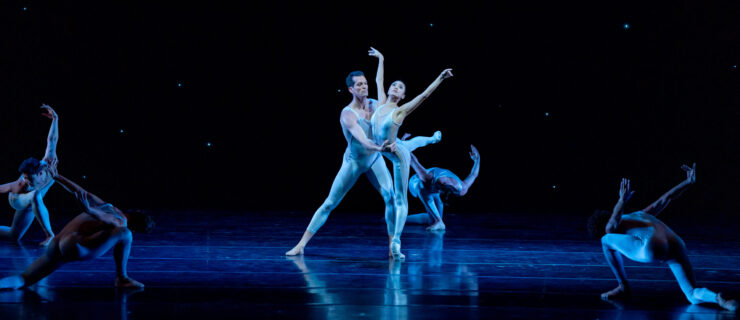Oregon Ballet Theatre Names Dani Rowe as Its New Artistic Director
Oregon Ballet Theatre has announced that Dani Rowe will become its next artistic director, effective February 27, after an 18-month search. The company has been led by interim artistic director Peter Franc since June 2021, following the departure of previous director Kevin Irving.
A native of Australia, Rowe was a principal dancer with The Australian Ballet and Houston Ballet, and later joined Nederlands Dans Theater. After her performance career she pivoted to choreography, creating works for San Francisco Ballet, Royal New Zealand Ballet, Milwaukee Ballet, Grand Rapids Ballet and more, and served as associate artistic director of SFDanceworks. She currently lives in San Francisco with her husband, SFB principal dancer Luke Ingham, and their two daughters.
OBT’s new executive director, Shane Jewell, says that Rowe’s background in both the classical and contemporary worlds, her work with major companies and her choreographic success were huge draws. “Her experience matches our desire—both in this company and this industry—to honor what has made this art form so special and challenge what should be challenged,” says Jewell. “Dani’s experience, her views on the culture of care, her commitment to the diversity, equity and inclusion work—it speaks to where we are now and where we want to go.”
Pointe sat down with Rowe in San Francisco last month, fresh off the world premiere of her ballet MADCAP at SFB’s next@90 festival, to talk about her new appointment.
How did this position come about?
I applied after many people sent me the advertisement for it. My husband and I have always wanted to move to Oregon—we did some vanning trips up there and fell in love with it. I also set my work Dreamland on the company recently; the size is quite small and the dancers are very warm and receptive. And I love that there’s reverence for traditional classical ballet, but also for contemporary work, and that’s kind of my wheelhouse—a collection of both. So it just seemed that if there’s a place I’d like to settle, it would be OBT. So I applied!
Do you have a preliminary vision for the company or see big changes ahead, or is it still too soon to say?
I think it’s too soon. I want to truly understand the company and Portland and what they need, and what we could be together. But mainly, keeping that reverence for classical ballet with a look towards the future. Portland also has a big crafting culture, an appreciation for how things are made. One thing I’d love to do is expose the building blocks that go into making a ballet, because I think that would really appeal to the community.
There have been a lot of drastic changes at OBT recently, so I think what everyone needs is stability and a clear path in front of them, and I want to provide that. What’s most important to me right now is listening and getting the lay of the land and hopefully being a grounding force for the company.
What kinds of classical ballets are you drawn to?
I’m interested in creating and commissioning new narrative full-lengths and one-acts. I think a big part of why we’re so attached to traditional ballets is the technical aspects; these are landmark works that most ballet dancers want to do. There’s the artistic fulfillment of playing Giselle, or Odette/Odile, but also the technical aspects, the 32 fouettés. I think that’s potentially what some people are missing from newer full-lengths—the dramatic component is there, the newer stories are coming, but how can we also infuse classical ballet technique that’s going to push and fulfill the dancers? Clearly a lot of the stories we’ve been working with don’t work anymore and the audience doesn’t feel as connected to them. I think we can take a bit of that and take it into the now—but that costs money! I think it’s important to have these museum pieces as well—we need to understand our history before moving on. So really educating the audience that this is a museum piece, seeing it as it was, and seeing what we can do now.
You are also an in-demand choreographer. How will that work once your directorship starts?
It was important for me to still have opportunities to choreograph elsewhere, but at the same time be present and focus on my role as artistic director. I will hopefully create consistently with the company, but it’s not going to be the “Dani Rowe Show.” I’m very interested in curating, providing opportunities to other choreographers and presenting a range of repertoire. I won’t be choreographing as frequently outside, but I’m hoping to get out twice a season.
Also, I think it’s important to see what else is happening at other companies, to have perspective—to come home after seeing a new choreographer, or how dancers and other departments operate in other companies, and seeing what we can learn from [them].
Will your husband, SFB principal Luke Ingham, move with you?
We’re going to split our time for a while because he wants to keep dancing, and of course I support that. We have an incredible “family” in San Francisco, as far as caregivers for our two daughters. So I’ll go back and forth and they’ll come to Oregon whenever they can. I think it’s also important to really dig in and get to know Portland, so that when they do relocate I’m more settled and present for the girls.
There’s been a lot of discussion in recent years about the lack of women leadership in ballet. Did that influence your decision to apply?
It’s not something I consciously think about, but if there hadn’t been such a movement recently, maybe I wouldn’t have applied? Perhaps I wouldn’t have thought that I would be able to or didn’t have the skill set or the confidence. I think it’s beautiful that so many women are supporting each other—I had people, all women, texting me to apply. And I think we’re stepping up and realizing our abilities. I think we’ve always known but, for me at least, needed a bit of a boost.
What is your leadership style?
I think I’m a good listener, and I do consider everyone’s points of view. But once doing that, I’m very decisive. One of my former directors used to say “Lead with affection.” And I can’t help but operate that way.
